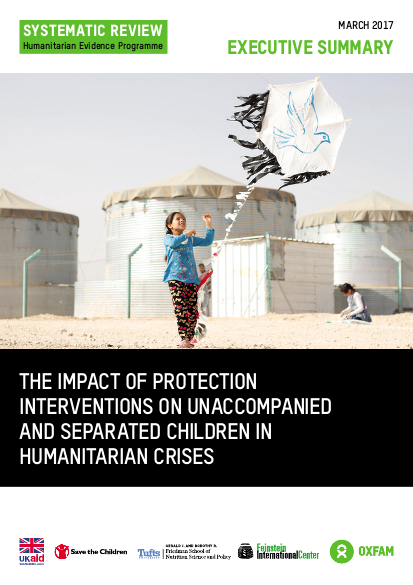
This is the executive summary of an independent systematic review, commissioned by the Humanitarian Evidence Programme ? a partnership between Oxfam GB and the Feinstein International Center at the Friedman School of Nutrition Science and Policy, Tufts University. It was funded by the United Kingdom (UK) government through the Humanitarian Innovation and Evidence Programme at the Department for International Development.
During conflicts and crises, children often face multiple stressors that can have significant impacts on their physical, cognitive, social and emotional development. Because unaccompanied and separated children (UASC) have lost the care and protection of their primary caregivers, they face a heightened risk of abuse, neglect, exploitation and violence. As a result, programming for UASC cases is often prioritized in the context of humanitarian interventions. But what is the impact of protection interventions on UASC in humanitarian crises in low and middle income countries? How effective are child protection activities specific to UASC at restoring a protective environment? How effective are interventions aimed at preventing and responding to abuse, exploitation, violence and neglect at ensuring the safety of UASC? How effective are mental health and psychosocial support interventions in promoting the mental health and psychosocial well-being of UASC? The systematic review synthesizes and evaluates the existing evidence base in order to find a response.
